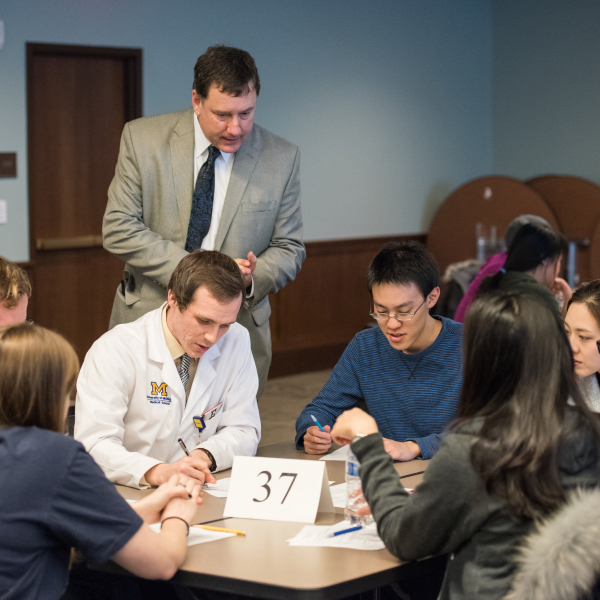Center for Interprofessional Education Celebrates Launch

Leaders of a major effort to transform health sciences education at U-M have launched a new center that brings together the seven health science schools, with a goal to prepare health professionals of the future.
July 1 marked the official launch of the Michigan Center for Interprofessional Education, which will serve more than 4,000 U-M students and expand on a program more than a year in the making.
To help celebrate the new organization, center leaders are asking the community to participate in an inaugural Health Professions Education Day 9 a.m.-1 p.m. Sept. 16 in the Michigan Union Rogel Ballroom.
The interprofessional education project is designed to break down the traditional silos that separate health professions by creating opportunities for collaborative and engaged learning across disciplines. It will be managed by the center with collaboration from the health science deans. The end goal is to prepare professionals who will work more effectively together to improve patient care.
The program is supported by a five-year, $3 million grant from the provost's Transforming Learning for the Third Century Initiative, which is matched with an additional $3 million from the deans of the seven schools: School of Dentistry, School of Kinesiology, Medical School, School of Nursing, College of Pharmacy, School of Public Health, and School of Social Work.
"Our university has long engaged in interdisciplinary research and practice. We are now committing significant resources to make sure that the same collaboration exists in the education of our students," says Frank Ascione, founding director of the center and former dean of the College of Pharmacy.
"Our goal is to ensure that every eligible health professional student will gain the knowledge and skills to be an effective member of the collaborative healthcare teams of the future."
Read the full article on the University Record.



